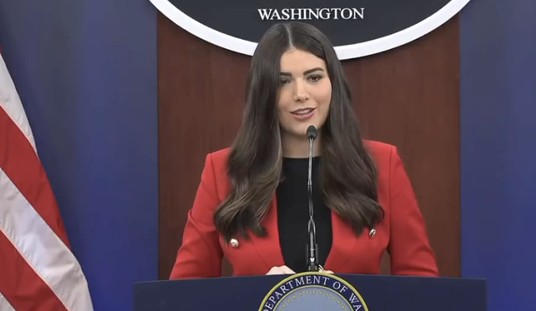When you look at crime in the United States, most tend to focus on how our so-called gun violence is higher than everywhere else in the world. They miss that our non-gun homicide rate is also higher.
So it's annoying when people who, theoretically, should know better, act like guns are the entirety of the problem with violent crime.
I'm talking about Johns Hopkins and its Bloomberg School of Public Health.
Recently, it published what it says are policies to reduce gun violence. Again, it's focused just on so-called gun violence, but I assure you, no one feels better because their loved one was beaten to death with a baseball bat rather than being shot.
What are the policies, though? Maybe there's something there that the American public would benefit from, you might wonder?
Recommended
The Johns Hopkins Center for Gun Violence Solutions at the Bloomberg School of Public Health has released a new roadmap to help assist Minnesota legislators in reducing gun violence in the state. The release comes less than two months after a shooter killed two students and injured dozens of others at a Minneapolis Catholic school, and nearly five months after the tragic shootings involving Minnesota Representative Melissa Hortman, State Senator John Hoffman and their spouses. Gun deaths have steadily increased over the past decade in Minnesota, with an alarming 525 Minnesotans dying from firearm violence in 2023.
“Minnesota is consistently ranked among the best states to live in. Yet even their communities are not immune from gun violence,” says Kelly Roskam, JD, Director of Law and Policy at the Center, co-author of the report and a Minnesota native. “This guide lays out crucial steps that Minnesota legislators must take to save lives.”
...Authors have divided recommendations into six main categories:
- Adopt a general secure storage requirement
- Strengthen the Firearm Purchaser Licensing process
- Strengthen public carry restrictions and regulations
- Improve domestic violence firearm removal and relinquishment processes
- Prohibit the manufacture, sale, transfer, and possession of large capacity magazines
- Create an office of gun violence prevention
That's right. Pretty much everything is about gun control.
Some of it, such as public carry restrictions, aren't based on anything except the hysteria that gun control advocates like to peddle. Licensed concealed carriers are among the most law-abiding people in the country, with an arrest rate lower than that of politicians, judges, and law enforcement officers.
In other words, they're not a threat and never have been.
On the contrary, the shooting at Annunciation Catholic School might have ended a whole lot quicker if just one person attending mass that day had been carrying a firearm.
However, what really bothers me here is that there's nothing about addressing the underlying causes of violent crime. Nothing about economics, addressing cultural issues that glorify violence in some communities, keeping people from becoming criminals in the first place, counseling of gunshot victims to keep them from seeking revenge, or literally anything that might make a massive difference in not just "gun crime" but all violent crime.
Of course, this is the Bloomberg School of Public Health. I'm not sure it knows it's capable of making suggestions that don't align with its namesakes' anti-gun politics. Then again, I can't swear that it's actually allowed to do so.



